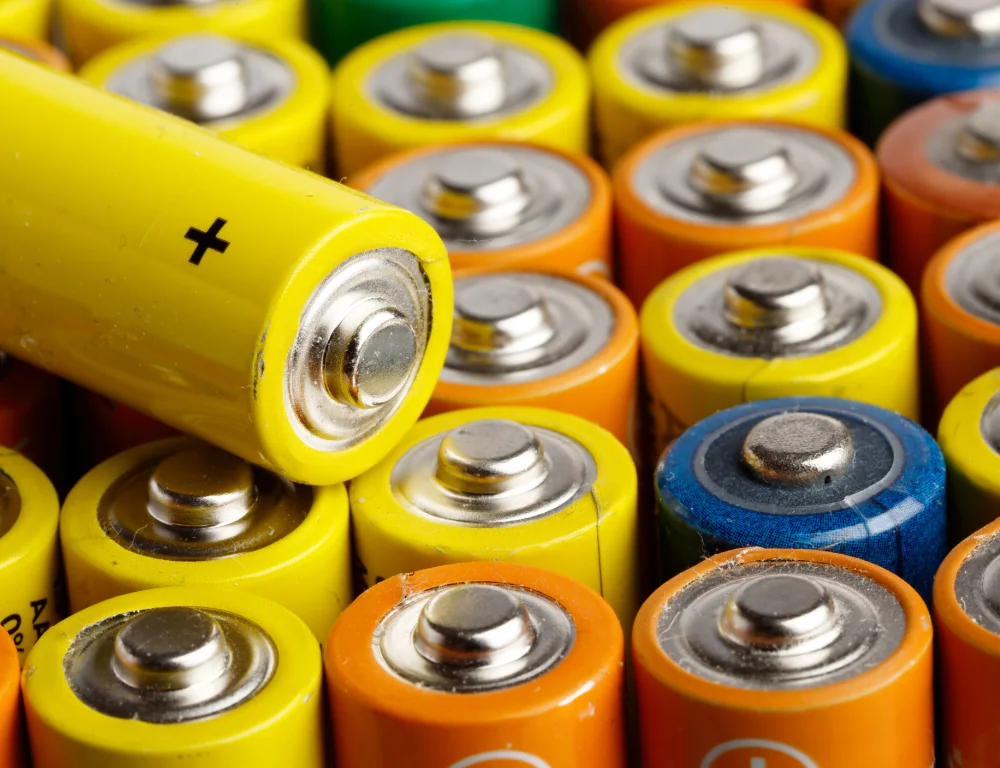
Shipping Batteries
Safe & Reliable Battery Shipping
Specialized care for every battery shipment. Compliant, efficient, and worry-free delivery across town or across the country. Get a quick quote and ship with confidence!
Explore More Resources for Battery Shipping
Hazardous Materials Shipping Guide Freight Class Lookup Tool Freight Shipping ServicesExplore More Resources for Battery Shipping
Shipping Automobile Batteries 5 Tricks To Get The Best Shipping Rates Basics of Freight ShippingShipping Batteries Safely & Efficiently
Thousands of businesses trust FreightCenter to move their freight faster, smarter, and cheaper! From unbeatable rates to top-notch service, our customers are raving about their shipping success.
See why they keep coming back!
Award-Winning Service, Trusted by Shippers Everywhere!
- 2021, 2017 & 2016 Food Logistics’ Top Green Providers
- 2021 & 2018 Supply & Demand Chain Executives’ Pros to Know: Matthew Brosious
- 2020 & 2019 Top Food Logistics’ 3PL & Cold Storage Provider Award
- 2020 & 2019 Business Observer’s Top 500 Companies on the Gulf Coast
- 2020 & 2017 SmartWay® Transport Partner
- 2020 & 2017 Food Logistics’ Champions: Rock Stars of the Supply Chain
- 2020 Best of Palm Harbor Awards for Local Businesses
- 2017 Green Supply Chain Award from Supply & Demand Chain Executive
- 2017 Tampa Bay Business Journal Heroes at Work
- 2016, 2015, & 2012 Food Logistics Top 100 Software and Technology Providers
- 2013 Tampa Bay Business 100 by Tampa Bay Business Journal
- 2013 Top 100 Great Supply Chain Partners by SupplyChainBrain
- 2012 TIA Samaritan Award Honorable Mention
- 2012, 2011 & 2010 TBBJ Fast 50 Recipient
- 2013, 2011, & 2010 Diversity Business Top Businesses

Why Ship Batteries With FreightCenter?
You can ship lithium batteries with FreightCenter using different modes of Transportation
Ocean Freight Services offer a dependable and cost-effective solution for shipping goods internationally. Whether you need full container loads (FCL) or less than container loads (LCL), our extensive network of carriers ensures smooth transport to global ports.
Air Cargo Services provide a fast and reliable solution for shipping time-sensitive freight across domestic and international destinations. With access to a vast network of air carriers, we ensure seamless transport for goods of all sizes, whether it’s high-value shipments, perishable items, or urgent deliveries.
Less than truckload (LTL) shipping is a smart logistics solution for businesses with smaller shipments. It combines multiple smaller shipments into a single truckload, optimizing space and reducing costs. LTL shipping offers affordability and efficiency while ensuring timely delivery, making it an ideal choice for companies looking to save on transportation expenses without compromising on service quality.
Rail shipping is an efficient and eco-friendly way to transport goods over long distances using trains. Renowned for its ability to handle large cargo volumes, it offers businesses a dependable and cost-effective solution for sustainable freight transportation.


Risks of Shipping Lithium Batteries
Shipping lithium batteries requires extra attention due to their high energy density and sensitivity to environmental conditions. At FreightCenter, we understand the unique challenges associated with transporting lithium batteries and are here to help you navigate them safely. Here are some key risks and how FreightCenter helps mitigate them to ensure secure, compliant shipments.
Fire and Explosion Hazards: Lithium batteries are known for their energy efficiency, but this also makes them prone to overheating, which can lead to fires or explosions if mishandled. Factors like damage, short circuits, or exposure to high temperatures can trigger “thermal runaway,” a rapid temperature increase that can cause the battery to ignite. This is especially critical in air transport, where a fire can spread rapidly. FreightCenter partners with carriers who are trained in handling hazardous materials and follow strict protocols for packaging and labeling to mitigate this risk.
Impact and Pressure Sensitivity: Lithium batteries are susceptible to damage from impacts, drops, or pressure changes, which can lead to dangerous chemical reactions. FreightCenter ensures that shipments are packed and insulated correctly to protect batteries from rough handling and environmental changes, such as fluctuating air pressure or temperature, particularly during air transport. Our experienced carriers use specialized packaging to reduce impact risks, keeping your shipment safe in transit.
Regulatory Compliance: Lithium batteries are classified as hazardous materials and must adhere to stringent regulations set by organizations such as the DOT, IATA, and UN. At FreightCenter, we simplify compliance by guiding you through proper labeling, documentation, and packaging requirements. Our team is knowledgeable about the unique handling requirements for each type of lithium battery—whether lithium-ion, lithium-metal, or lithium-polymer—and will ensure your shipment meets all regulatory standards, preventing costly fines or delays.
Environmental Concerns: Damaged lithium batteries can leak hazardous materials, posing environmental risks. FreightCenter works with carriers that use protective packaging and follow best practices to minimize these risks. This attention to detail protects both the environment and your reputation, ensuring that shipments arrive intact and without contamination concerns.
Shipping Mode Restrictions: Shipping lithium batteries via air comes with restrictions due to the inherent risks, and many carriers have specific guidelines or may not accept certain battery types for air transport. FreightCenter has a network of carriers who are experienced in handling lithium batteries and can offer alternative ground or ocean freight options when air shipping is not feasible. Our team will work with you to find the safest, most compliant shipping method based on your needs.
With FreightCenter, you’re supported by a team that understands these unique risks and takes the necessary steps to ensure your lithium battery shipments are secure, compliant, and worry-free.
Frequently Asked Questions (FAQ) About Shipping Batteries with FreightCenter
Q. Can I ship all types of batteries through FreightCenter?
Yes, FreightCenter can help you ship a variety of batteries, including lithium-ion, lithium-metal, lead-acid, nickel-cadmium (NiCd), and alkaline batteries. Each type has specific packaging, labeling, and regulatory requirements, especially if they’re classified as hazardous materials. Our team will work with you to ensure your battery shipments comply with all necessary standards.
Q. Are there special requirements for shipping lithium batteries?
Lithium batteries are considered hazardous materials and are subject to strict regulations. They require special packaging, labeling, and documentation to ensure safe handling during transit. Whether you’re shipping lithium-ion or lithium-metal batteries, FreightCenter can guide you through these specific requirements to ensure a compliant and safe shipment.
Q. What documentation is needed to ship batteries?
Shipping batteries generally requires a Bill of Lading, safety data sheets (SDS), and contact information for both the shipper and recipient. For hazardous materials like lithium batteries, additional documents, such as a Dangerous Goods Declaration, may be required. FreightCenter assists with documentation to help you avoid delays and ensure compliance.
Q. Do I need to label my battery shipments?
Yes, battery shipments require specific labels to indicate the type of battery and any handling instructions. For hazardous batteries, such as lithium types, Hazard Class 9 labels are required, along with specific markings to indicate the contents. FreightCenter will help ensure your shipment is correctly labeled to meet all regulations.
Q. Can I ship batteries internationally with FreightCenter?
Yes, FreightCenter supports international battery shipments. However, regulations vary by country, and some destinations may have restrictions, especially for lithium batteries. Our team is experienced in navigating international regulations and will work with you to ensure your shipment meets the requirements of the destination country.
Q. Are there restrictions on shipping batteries by air?
Yes, air shipping restrictions for batteries—particularly lithium types—are often strict due to fire risk. Many airlines limit or prohibit certain types of lithium batteries, requiring special packaging, documentation, and lower charge levels for those allowed. FreightCenter can help you determine the safest and most compliant shipping method for your batteries, whether by air, ground, or ocean.
Q. What is the best way to package batteries for shipping?
Batteries should be packed to prevent damage, short-circuiting, and movement during transit. This often includes insulating terminals, using protective padding, and selecting durable outer packaging. For lithium batteries, packaging must meet UN 38.3 testing standards. FreightCenter can provide guidance on best practices for packaging your specific battery type.
Q. Are there environmental risks associated with shipping batteries?
Yes, damaged batteries can leak harmful chemicals into the environment. Proper packaging and handling are essential to avoid these risks, particularly for lithium and lead-acid batteries. FreightCenter works with carriers experienced in safely transporting batteries to prevent environmental hazards.
Q. How does FreightCenter ensure my battery shipment is compliant with regulations?
FreightCenter has a team knowledgeable in hazardous materials shipping, including batteries. We provide guidance on packaging, labeling, documentation, and carrier selection to ensure your battery shipment meets all relevant DOT, IATA, and international regulations.
Q. How can I track my battery shipment with FreightCenter?
FreightCenter offers real-time tracking for battery shipments, so you can monitor the status and estimated delivery of your package. This service provides added transparency and peace of mind, allowing you to stay informed throughout the shipping process.
Q. Who can I contact if I have questions about shipping batteries?
Why Choose FreightCenter?

25+ Years of Service
25+ Years of Service: We have over 25 years of experience, as evidenced by our large network of professional carriers. Our knowledgeable team of shipping experts is ready to help you optimize your small business for the intricate world of logistics.

Customizable Shipping Options
Need a liftgate? No problem! Need to ship your products quickly? We got you covered! Our FreightCenter agents can offer you tailored solutions for your specific shipping needs, no matter what kind of small business you are.

Friendly Customer Support
Friendly Customer Support: Our customer support team has the answers to many of your shipping questions and concerns. We’re here to help you through every step of the shipping process, from initial inquiries to post-shipment issues.

